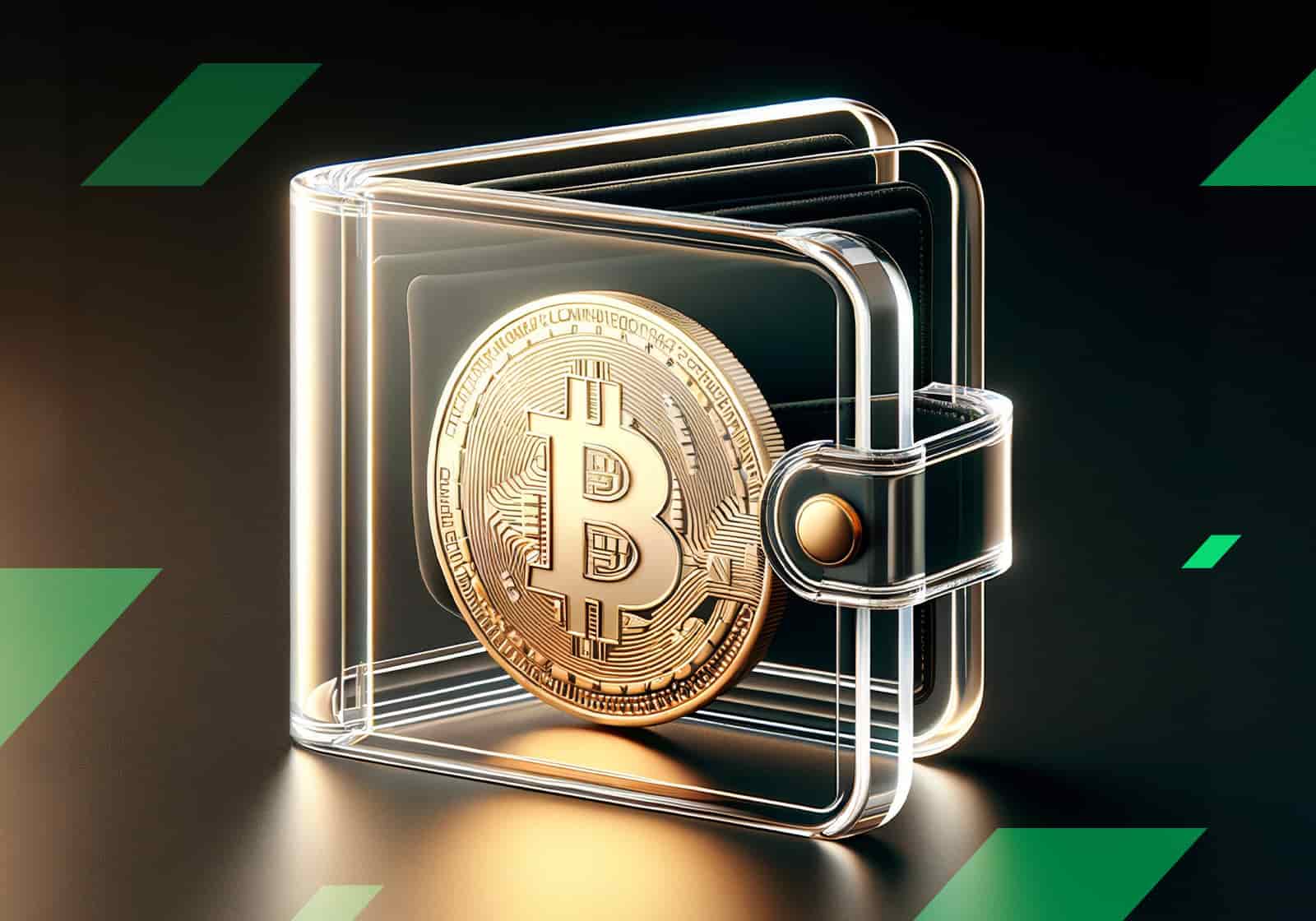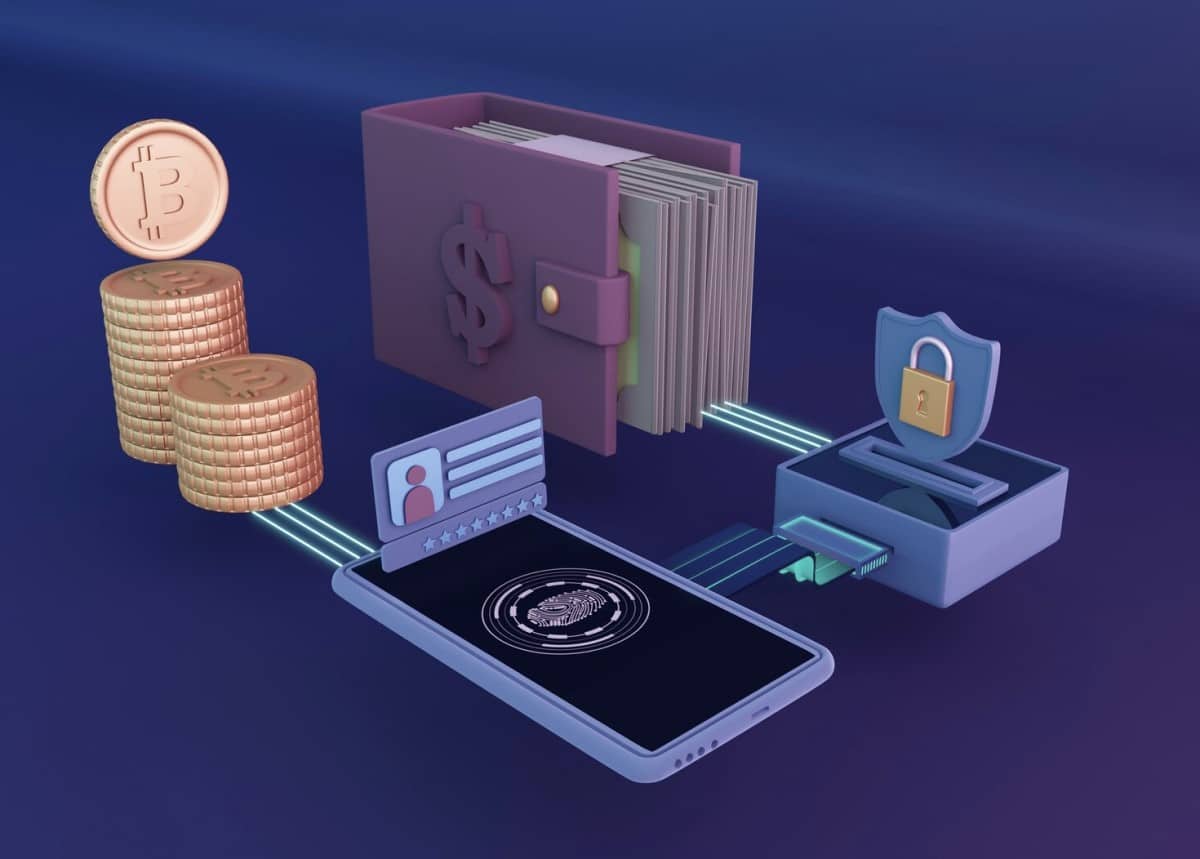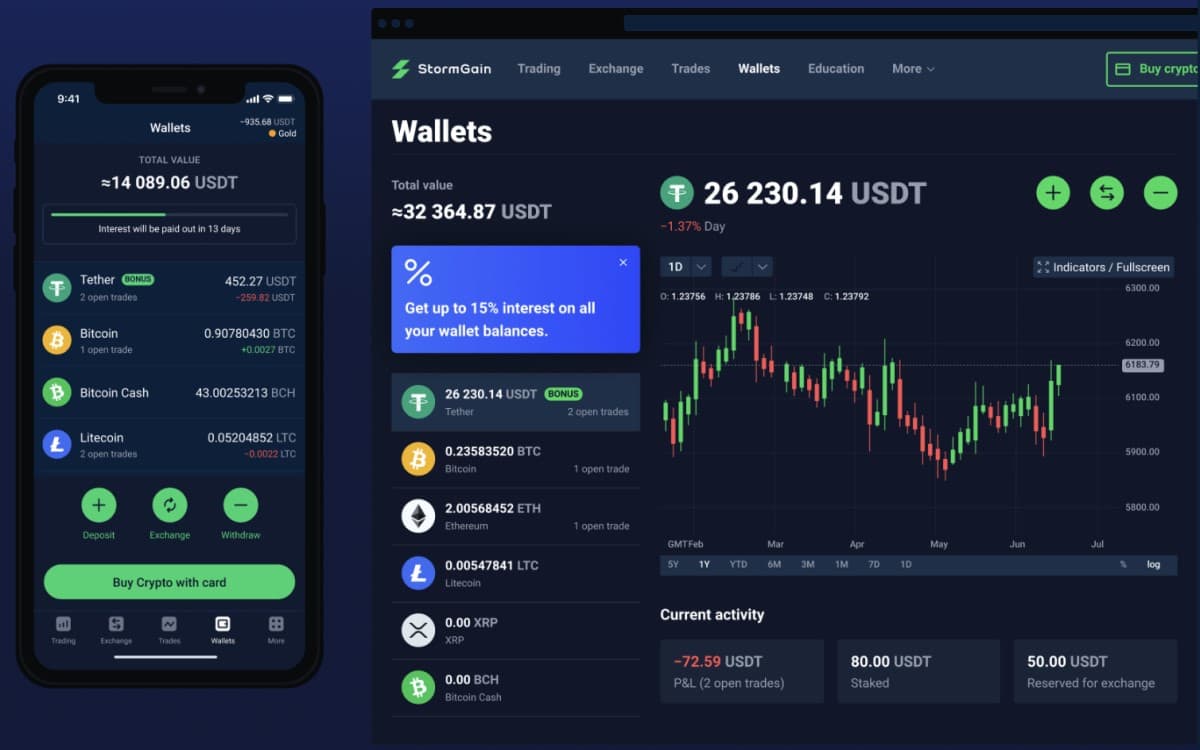Crypto Wallet History: Evolution and Future Trends

For many of us, the cryptocurrency market is synonymous with innovation, and it's clear why. We eagerly add new digital assets to our portfolios, and emerging solutions such as crypto wallets have been presented as a transformative force in the digital world. Today, we can choose from diverse cryptocurrency wallet types to meet all our needs. But how did the crypto wallet history start and evolve? What does the future hold? Let's explore.
What is a cryptocurrency wallet?
Before discussing the history of wallets, let's get the cryptocurrency wallet explained.
A crypto wallet is a digital tool that allows users to store, manage, and transfer cryptocurrencies like Bitcoin, Ethereum, and other digital assets. Unlike a traditional wallet that holds physical currency, a cryptocurrency wallet does not store the actual coins but instead holds the private and public keys needed to access and control your digital assets on the blockchain.
Cryptocurrency wallets are vital resources for every new and professional investor. These secure vaults store your digital assets and protect your private keys, which are essential for accessing blockchain technology and related services. You can instantly transfer any amount of assets between wallets, which is one of the main reasons many businesses and sole entrepreneurs prefer crypto over fiat money for financial operations.
How does a cryptocurrency wallet work
A cryptocurrency wallet manages the keys that allow users to access and control their digital assets on the blockchain. It doesn't store the cryptocurrency itself but rather the cryptographic keys that give users the authority to send and receive cryptocurrencies. Like your bank account, a public key is open to anyone. You can share it with anyone. A private key is like a password that should be kept secret. Private keys are used to encrypt and decrypt data.
Crypto wallets commonly work on hot and cold wallets:
- A hot wallet is connected to the internet and accessible via web browsers and mobile apps. This is the most common cryptocurrency wallet type, perfect for daily use and instant transactions. It's not as safe as a cold wallet. When using a hot wallet, you should beware of the risk of hacking attempts.
- A cold wallet is a safe cryptocurrency wallet type. It's not connected to the internet and requires you to possess a hardware device to access the digital assets it stores. Cold wallets are the best choice for long-term crypto holdings.
Cryptocurrency wallet types

One of our earlier articles discussed the major cryptocurrency wallet types. Feel free to check it out for more insights! Below, we offer a quick revamp of the major types of crypto wallets and their distinctive features.
- A software wallet functions like a digital account for storing cryptocurrency. It's a program that users install on their devices. Software wallets are often chosen as the first wallet type due to their ease of use and quick setup. They can be accessed on desktop, mobile, or web platforms.
- A hardware wallet is a more secure form of cold storage, offering additional protection. It stores the user's private keys offline and requires a PIN for access. It's a physical device similar to a USB drive, making it much safer from online threats.
- A paper wallet consists of a printed document that contains the public and private keys of a cryptocurrency address, often in the form of a QR code. It's commonly used for storing large amounts of cryptocurrency but is vulnerable to physical damage and loss.
- A multi-signature wallet is designed for enhanced security, requiring multiple keys to approve and process transactions. It's ideal for organisations, as it functions like a secure vault that needs two or more signatures to access the funds.
- A custodial wallet is where a third party holds the private keys on behalf of the user. It requires an internet connection to interact with blockchain data and is convenient for managing and safeguarding transactions. With backup options, users can recover access even if they lose their private key.
- Also known as self-custody wallets, non-custodial wallets give users complete control over their private keys. This option is ideal for those who prefer to manage their funds, but the downside is that recovery is only possible if the private key is recovered.
Crypto wallet history
Cryptocurrency wallets have significantly evolved, starting with Bitcoin Core and advancing to hardware wallets, decentralised finance (DeFi) integrations, and non-fungible tokens (NFTs). The Bitcoin client software wallet, first used by Hal Finney, played a crucial role in the early development of Bitcoin and the broader cryptocurrency landscape.
Bitcoin Core
The first-ever cryptocurrency wallet, Bitcoin Core, was introduced in 2009 to store and manage Bitcoin. It functioned as a wallet and validator software, allowing users to store their private keys and validate transactions by running a full Bitcoin node. It paved the way for the inseparable link between wallets and blockchain.
Paper and brain wallets
Early non-custodial wallets required users to store private keys themselves securely. Paper wallets, where private keys were printed, and brain wallets, where they were memorised, were common storage methods. However, the risk of losing access to funds if the key was lost led to the development of more secure digital wallets.
Web wallets and custodial services
As cryptocurrency adoption grew, custodial wallets emerged, simplifying the user experience by allowing third parties to hold private keys. Mt. Gox was one of the first platforms offering such services, but its major security breaches highlighted the need for stronger wallet security.
Desktop and non-custodial wallets
In response to custodial wallet issues, non-custodial desktop wallets like Armory and Electrum were developed, offering advanced security features such as cold storage and multi-signature transactions. These wallets improved user control over their funds and enhanced overall security.
Mobile wallets
The rise of smartphones led to mobile wallets like Mycelium and Breadwallet, designed for both security and user-friendliness. Many focused on encryption, privacy, and cold storage options to protect user funds while improving accessibility.
Hardware wallets
Hardware wallets like Ledger Nano X introduced a secure way to store private keys offline using tamper-resistant chips. These wallets became essential for long-term storage and added another protection against hacking.
Through each stage of development, wallets have become more secure and user-friendly, shaping the way cryptocurrency is stored and managed today.
The future of crypto wallets
Crypto wallets are advancing rapidly. The global market was valued at approximately $8.42 billion in 2022 and is projected to grow at a 24.8% compound annual growth rate (CAGR) from 2023 to 2030. This reflects the increasing demand for efficient digital asset management.
Let's have a look at upcoming trends in cryptocurrency wallets.
Improved security features
As security remains a top priority, future wallets will likely integrate advanced features such as multi-factor authentication, biometric verification, and secure enclaves. Hardware wallets will merge more seamlessly with mobile wallets, offering enhanced protection for users through decentralised identity solutions.
Interoperability and cross-chain compatibility
Managing assets across multiple blockchains can take time and effort. In the future, wallets that support cross-chain transactions and interoperability will allow users to store and transfer assets across different networks with ease, simplifying portfolio management.
DeFi integration
With decentralised finance (DeFi) gaining traction, wallets will increasingly offer built-in access to DeFi services like lending, borrowing, and yield farming. This enables users to control their assets fully while engaging in various financial activities directly from their wallets.
Privacy-enhanced wallets
Privacy is becoming a greater concern for cryptocurrency holders. Future wallets will focus on boosting anonymity and protecting personal data, offering features that ensure user transactions and asset holdings remain confidential and secure.
Try StormGain's multi-currency crypto wallets

At StormGain, we have integrated our trading platform with secure, user-friendly, multi-currency crypto wallets. We protect your data and transactions using industry-leading encryption protocols, facilitating the management and exchange of various cryptocurrencies.The StormGain wallet is completely free for all users, providing a cost-effective solution for cryptocurrency management.
Rather than that, the key features and security measures of StormGain wallet include:
- The wallet supports six major cryptocurrencies: Bitcoin (BTC), Bitcoin Cash (BCH), Ethereum (ETH), Ripple (XRP), Litecoin (LTC), and Tether (USDT).
- Users can access their wallets 24/7 from any device, including smartphones, tablets, and computers.
- The platform is designed to be intuitive for novice and experienced traders, making it easy to buy, sell, and exchange cryptocurrencies.
- Users can swap cryptocurrencies at market prices and utilise advanced trading tools for more sophisticated transactions.
Sign in to the web or mobile version of our app and access our crypto wallets' security and usability features!
Tags
Try our Bitcoin Cloud Miner and get additional crypto rewards based on your trading volume. It's immediately available upon registration.
Try our Bitcoin Cloud Miner and get additional crypto rewards based on your trading volume. It's immediately available upon registration.



